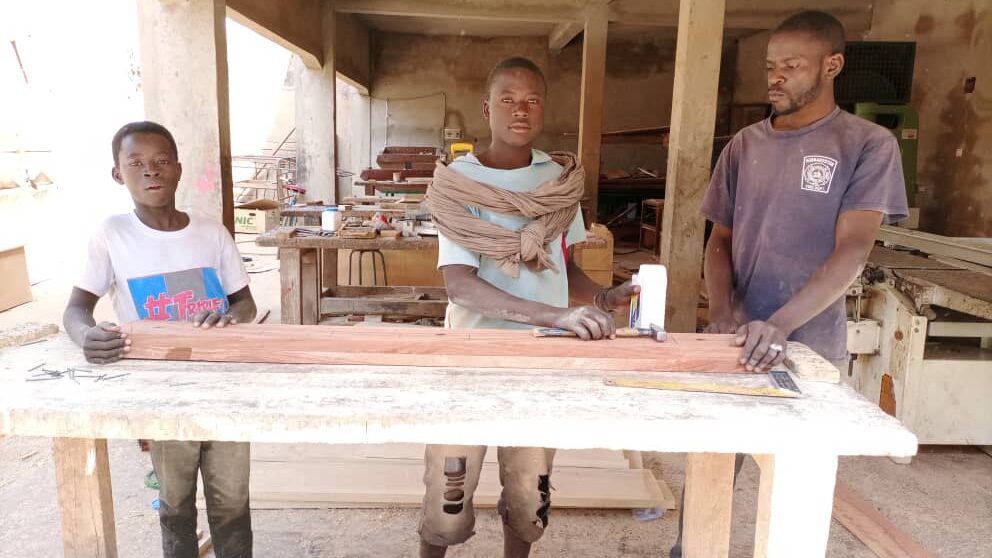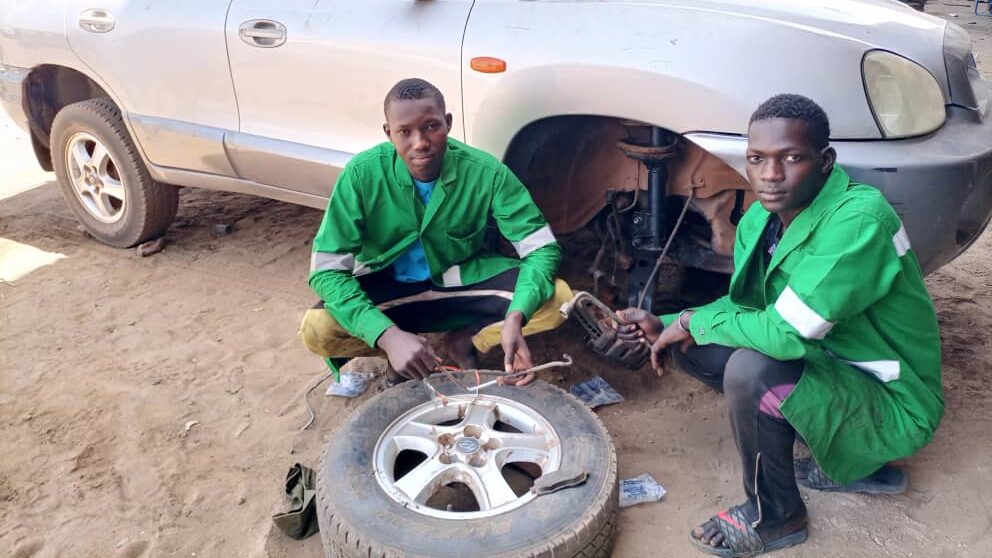Strengthening vocational pathways for young people through training of employers
An interesting and for the WNCB programme unique intervention, in the framework of vocational and skills training, is the training of employers. As there are insufficient formal vocational training institutes in the vast country of Mali, for young people who want to learn a trade there is only the possibility to learn through apprenticeships. But often this is not a well-organized learning experience for them, and many apprentices are in reality used as cheap labourers. There is also often no further recognition of the skills they acquire, which limits their future perspectives.
To work towards more sustainable learning pathways, Save the Children Mali and its NGO partner GRAADECOM have drawn up and signed a protocol of collaboration with the regional Chambers of Trades. Part of the agreement is a targeted training of Master Craftsmen, who become then certified Master Craftsmen Trainers (Maîtres Artisans Formateurs). They learn how to offer a real learning experience to their apprentices.


First, they learn to be good tutors through a module which enables the master craftsman to recognise himself as the tutor par excellence of all the learners in all areas. They learn among other things about educating in different values, on correct behaviour in the workshop and in the community, on the regulation of the times when learners can get on and off, and on issues as catering or health.
A next step is learning to be a mentor and role model for the learners. They learn to understand the difficulties that learners are encountering , they learn how to take action against insults, fights and any bad behaviour in the workshop and in their professional and ordinary lives. They become a reference person for the learners.
The Master Craftsmen then also learn about protection. They must make sure that the working environment is not harmful to the learners. The workshop must be clean, and no sharp, stinging, dirty or nauseating objects should be around. The employer must also ensure that the apprentice is safe from rape, assault and battery, repression, neglect, economic and sexual exploitation. The workplace must be a safe place.
Another important subject is safeguarding: learners and all persons (service providers and sub-contractors) involved in the work done by the business or workshop must act in a way that does not harm others. Any failure to do so must be reported to Save the Children for action to be taken in accordance with the code of conduct signed between SCI and its collaborators.
And finally, as part of this more pedagogical part of the training, the workshop leader learns about being accountable to SCI/ GRAADECOM and to the parents of the learners. He/she must adopt an attitude of feedback and make sure to be a safe organisation for the beneficiaries. These can react through freephone numbers, suggestion boxes, or during face-to-face meetings. The master craftsmen trainers must give the learners, their parents and the community the opportunity to appreciate the way in which he/she trains the learners.
Of course, the workshop owners must also be able to manage their business well, and eventually follow training on financial issues. They also must improve their own professional skills in their trade, in order to be the good example they need to be, and know enough about the requirements of their trade and its importance in society or relevance in the community.
Benefits for all
For the workshop owners, the benefit of following the training to be a Master Craftsman Trainer, is not only to have acquired the skills and knowledge to train well their future employees, colleagues or successors, they also profit from the registration they obtain at the end of the training with the Ministry in charge. They receive then the professional card that gives them a certain status and authorises them to practise their profession anywhere in the country. As a consequence of this further professional development for master craftsmen, in a number of communities, they have now organised themselves into associations to be stronger and more enterprising.
For the learners there are equally benefits: their apprenticeship is first of all a better learning experience, giving them a well prepared start in their trade. And as a consequence of the strong cooperation between the WNCB partners, relevant Ministries and Chambers of Trade, the skills they acquired during their apprenticeships are now also better validated and where possible linked to formal qualifications, giving hem the opportunity to work also outside their communities.

